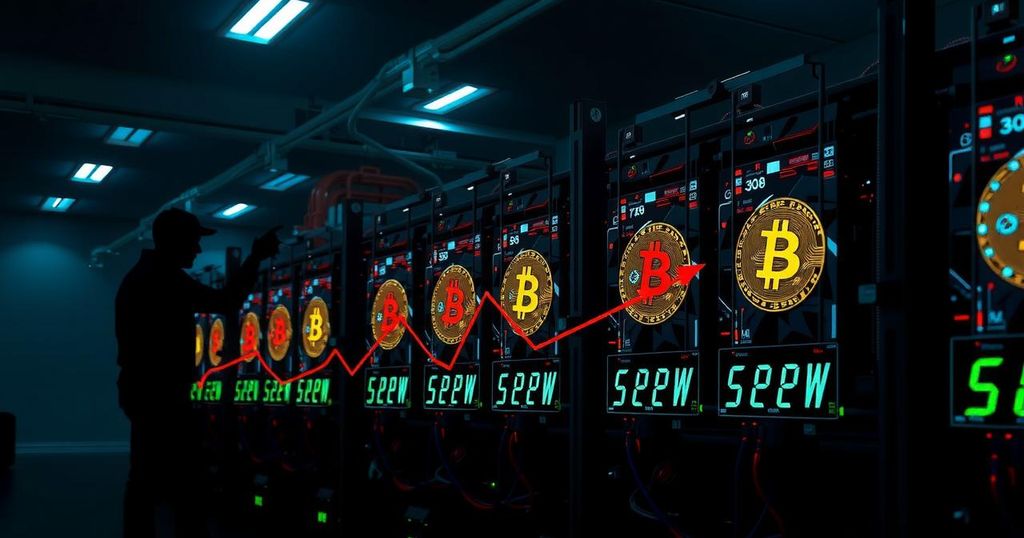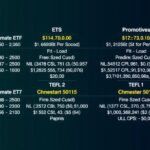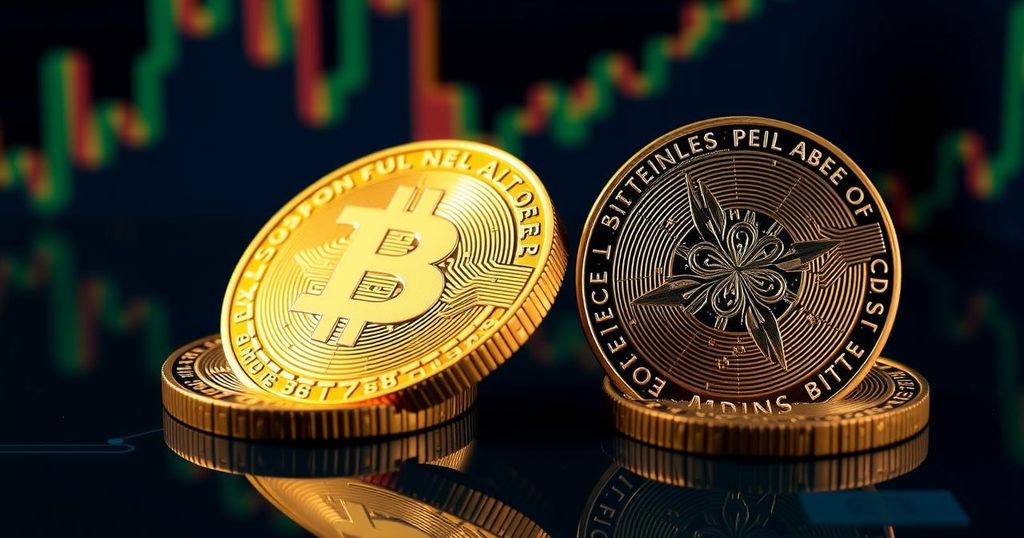JPMorgan Reports Historic Lows in Bitcoin Mining Profitability
JPMorgan has reported that the profitability of Bitcoin mining has reached historical lows, presenting significant challenges for miners in the current economic landscape. Last month, miners received an average of $43,600 per exahash per second in daily block rewards, marking the lowest rate ever documented. This alarming trend is attributed to a combination of increasing mining difficulty and a highly competitive environment for miners.
Bitcoin mining serves a critical purpose within the Bitcoin ecosystem, as it enables the creation of new Bitcoins and the validation of transaction blocks on the blockchain. Miners engage in a competitive quest to solve intricate cryptographic puzzles, and in return for their invaluable contributions, they are rewarded with newly minted Bitcoins and transaction fees associated with the blocks they validate. This process, known as “Proof of Work,” has been the cornerstone of the Bitcoin network’s security since its inception in 2009.
The profitability of Bitcoin mining is contingent upon several key factors, including the prevailing price of Bitcoin, mining difficulty, electricity costs, and the efficiency of mining hardware. However, in 2023, these factors have begun to converge against miners. The recent JPMorgan report highlights that the decline in mining profitability is closely tied to a rise in mining difficulty. This parameter adjusts in response to the overall computational power of the network, ensuring that a new Bitcoin block is produced approximately every ten minutes. Consequently, as more miners enter the fray and increase their computational output, mining difficulty escalates, complicating the reward acquisition process.
In recent months, mining difficulty has surged to unprecedented levels, necessitating more time and resources to successfully resolve a block. While the Bitcoin price has remained relatively stable, the escalation in operational costs has severely weakened miners’ profit margins. As per JPMorgan’s findings, the current average earning per exahash per second has plummeted to an all-time low of $43,600.
The price of Bitcoin plays a crucial role in determining mining profitability. When Bitcoin prices are elevated, miners benefit from higher returns per block mined. Nonetheless, the volatility of Bitcoin prices, coupled with the stagnant growth in recent months, has hindered miners’ profitability as increased energy and hardware expenses are not being offset. Even large-scale mining operations, which typically leverage economies of scale, are not immune to the diminishing profit margins.
The ramifications of this decline in Bitcoin mining profitability can have broad implications for the cryptocurrency ecosystem. A downturn in mining revenues may lead to a reduction in active miners, forcing many to abandon their operations when costs overshadow their earnings, ultimately reducing the network’s overall hashing power. Such a decline could trigger a cycle of decreased mining difficulty, albeit with potential repercussions on Bitcoin’s security. A weakened network could become more vulnerable to cyberattacks, although current technological safeguards still afford a robust level of protection.
Moreover, reduced profitability may compel miners to seek out more cost-effective energy solutions, with a marked interest in sustainable practices influencing movements toward renewable energy sources. Recent trends indicate that miners are increasingly migrating to regions with lower electricity costs deriving from renewables, thus alleviating some financial pressures.
JPMorgan cautions that if the mining difficulty persists in its upward trajectory without corresponding improvements in Bitcoin pricing, miners could face intensified pressures. This scenario may lead to heightened industry consolidation, as smaller miners exit while larger providers capture more of the network’s operations.
Despite the pressing challenges, some analysts maintain optimism that Bitcoin’s price may rebound in the future, thereby enhancing mining profitability. Should Bitcoin achieve new record-high valuations, as many stakeholders anticipate, the rewards available to miners could also experience significant growth. However, JPMorgan also points out that prevailing macroeconomic uncertainties and potential regulatory changes in the cryptocurrency landscape could adversely affect future performance in this sector.
In conclusion, the current state of Bitcoin mining profitability is alarming, with miners earning a mere $43,600 per exahash per second in daily rewards as reported by JPMorgan. This predicament results from a perfect storm of escalating mining difficulty, soaring energy costs, and stagnant Bitcoin prices. As miners navigate these complexities, they are compelled to seek innovative cost-reduction strategies while remaining vigilant in the face of an ever-evolving market. The interplay of Bitcoin’s price trajectory, advancements in mining technology, and shifts in global regulations will undeniably shape the future of this pivotal activity within the cryptocurrency ecosystem.








Post Comment